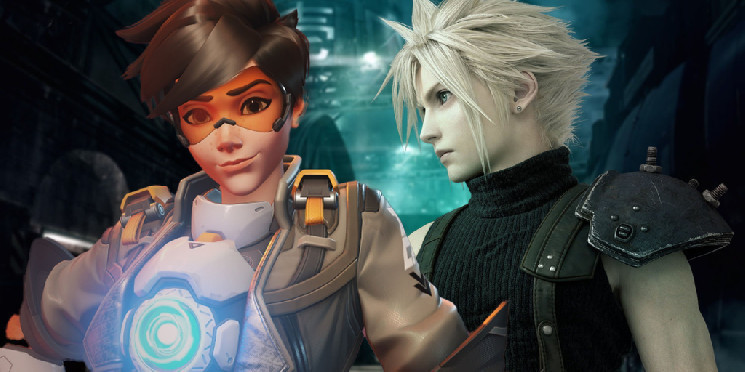Some of the most prolific video game studios are using generative AI to automate the tedious elements of game design, like $NPC dialogue and creating new levels of detail for in-game renderings—all in an effort to speed development and focus human talent on more important elements.
Generative AI is artificial intelligence that can create new content—such as text, images, or music—using prompts. It learns from a large amount of data and uses that data to generate new, complementary content ranging from simple sentences to videos and complex works of art.
Although a technology that’s only recently captured the imagination (and concern) of the mainstream, here is how some game developers are already using AI.
Blizzard Entertainment
Blizzard Entertainment, the studio behind Diablo, Overwatch, and World of Warcraft, reportedly revealed in an internal memo in May that the company had begun experimenting with AI to create in-game character renderings.
According to the New York Times, Blizzard deployed its own internal AI tool, warning employees not to use third-party AI platforms to prevent the leak of confidential company data and IP. Although Blizzard executives were excited about the potential use of AI in the next generation of games, some employees said the company’s AI did a bad job of catching in-game bugs and issues in the games it was tested on.
Square Enix
In April, Square Enix's AI division published a demo of its AI-generated update to the 1983 text adventure game, The Portopia Serial Murder Case, highlighting how large language models could be applied to text-based games.
The company behind Final Fantasy and Kingdom Hearts has been looking at AI for a while now. In May 2022, Square Enix announced that it would sell several of its subsidiaries and the Tomb Raider franchise (among others) to Sweden-based Embracer Group AB, and use the funds to invest in artificial intelligence as well as Web3 games.
Roblox
The online gaming platform Roblox announced the launch of two new generative AI tools in February to streamline game creation: Code Assist and Material Generator.
Currently in beta, the tools automate basic coding tasks by generating helpful code snippets and creating object textures from prompts. Roblox said that using generative AI makes the creative process easier and faster, adding that there are plans to enable third-party AI services as well in the hopes of enticing AI developers and creators to the Roblox platform.
Ubisoft
Ubisoft, the creator of the Assassin’s Creed franchise, announced the launch of Ghostwriter in March. This AI tool lets game developers generate first draft non-player character ($NPC) dialogue, colloquially known as “barks,” allowing writers to focus on story development.
Ubisoft says the ultimate goal is to give designers the ability to create AI systems tailored to their specific needs by using a back-end tool called Ernestine for creating large language models of their own—like Ghostwriter.
NCSoft
That same month, NCSoft—creator of Aion, Guild Wars, and the Lineage series of games—unveiled its digital human technology in a trailer for the upcoming game Project M using Unreal Engine 5. The company created the digital human's dialogue using NCSoft's AI text-to-speech synthesis technology, which can translate text into human speech as well as reproduce an actor's way of speaking, accent, and emotions.
Not content to stop at AI-generated voices, NCSoft also used “voice-to-face” technology to add facial expressions and lip-sync the dialogue.
Nvidia
Technology giant Nvidia released a demo of its NVIDIA Avatar Cloud Engine (ACE) for Games in May. The demo depicted an AI-generated rendering of a ramen shop and a non-player character ($NPC) behind the bar speaking with the player.
By using AI, the $NPC can understand meaning with better interactions, explained Nvidia CEO Jensen Huang. Created in partnership with Melbourne-based Convai, ACE incorporates several Nvidia services, including NeMo, Riva, and Omniverse Audio2Face.
There’s always a catch
While developers are forging ahead with using AI in their games, that does not mean those games will be released to the public.
Last week, game developers said that Valve Corporation's Steam PC gaming marketplace rejected their game for listing because they included AI-generated content that appeared to be copyrighted.
"We welcome and encourage innovation, and AI technology is bound to create new and exciting experiences in gaming," Valve said in a statement. "While developers can use these AI technologies in their work with appropriate commercial licenses, they can not infringe on existing copyrights."
 decrypt.co
decrypt.co
